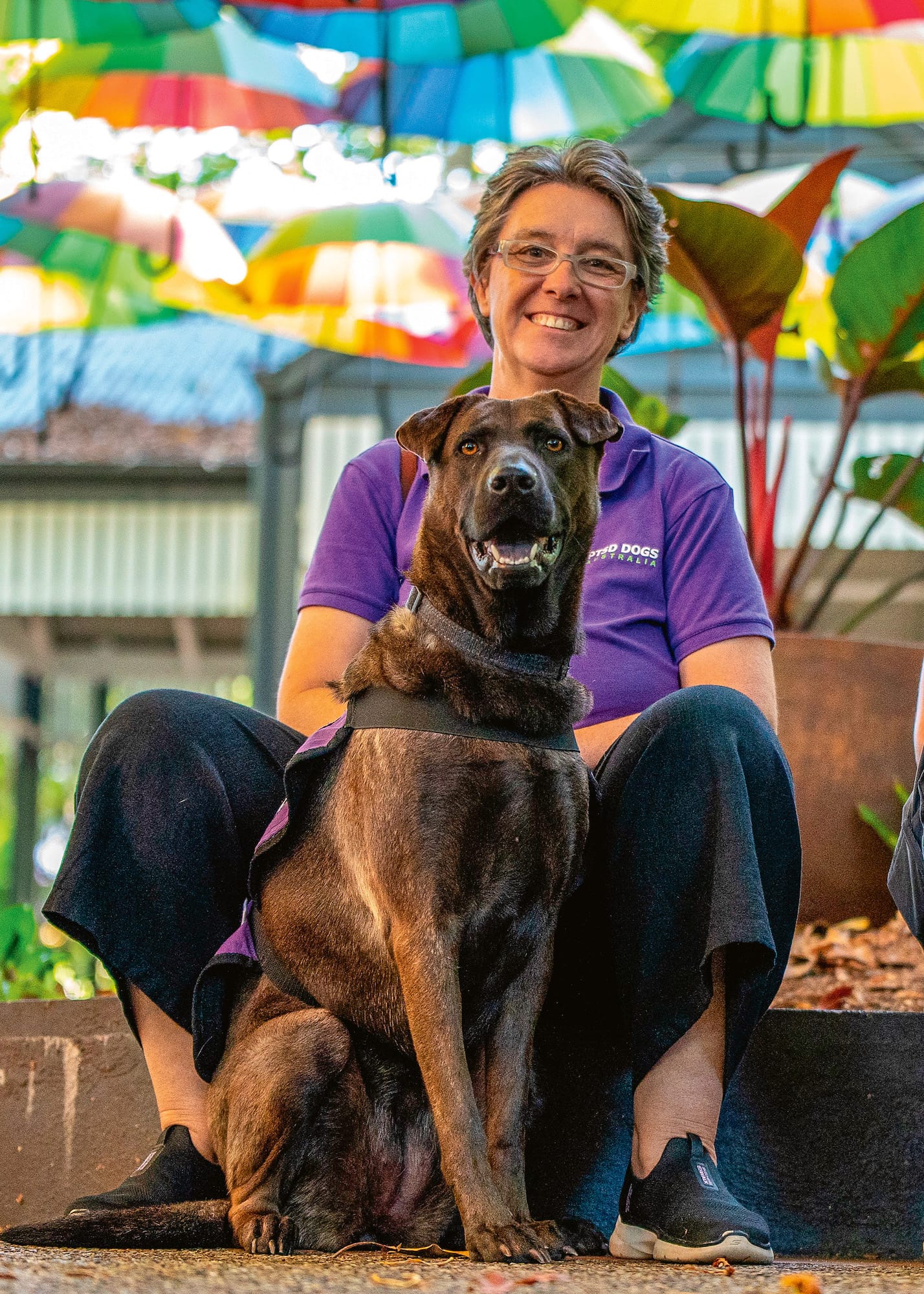
Highlighting the work of three remarkable community projects.
Words Megan Holbeck
Galah is highlighting remarkable community work in rural and regional Australia in a series made possible by our partnership with Westfund, a not-for-profit health fund with a 140-year history in regional Australia.
It began in 2018 with a mission: to save the life of Roger Weeks.
He had been medically discharged from the Australian Air Force 30 years earlier and had suffered post-traumatic stress disorder (PTSD) ever since. He’d had enough of the chronic pain, social isolation and trauma, and presented his wife Angie with his “exit plan”.
She had other ideas. With the help of his psychiatrist, Roger had been trying to get an assistance dog for years, but the $40,000 bill and a four-year wait list seemed insurmountable. So Angie decided to train dogs herself.
Guide dogs are the best-known example, but assistance dogs can be trained to help people mitigate a broad range of medical conditions, including diabetes, hearing loss and depression. Extensive training is specific to each condition, to each individual and to the desired outcomes.
While guide dogs help their humans safely navigate the world, PTSD dogs are trained to recognise stress markers – flight, fight, freeze or fidget – and stop their humans reliving their trauma, helping them refocus. Angie lists examples: a trembling limb signals a dog to lie on their human, using their body weight to calm; at the first sign of night terrors, a dog will wake their human, turn on the lights and join them for a cuddle.
Angie and Roger co-founded the Sunshine Coast-based charity PTSD Dogs with a
dual mission: to rescue dogs, who then rescue veterans and first responders. Angie started by teaching a local animal shelter to recognise suitable candidates. The dogs are fostered, then begin an intensive six-month training program. Dogs are then matched with a veteran or first responder with clinically diagnosed PTSD via a process of considering individual medical goals, symptoms, physical needs and personal traits – ranging from mobility to attitude to touch – before receiving a further six months of paired training.
After 12 months of training, Rosie the seven-year-old labradoodle quietly transformed the Weeks’s lives. From small steps such as going out for coffee and attending family gatherings, they can now do previously unthinkable things,
such as catching flights and taking holiday cruises. The biggest benefit for her and other partners, Angie says, is being “able to go out and not be worried whether they’re going to come home to a husband”.
PTSD Dogs has trained and placed 50 dogs, transforming the lives of PTSD sufferers, their loved ones and communities.
The demand is huge. Given the means, the charity could easily triple the number of
trained dogs. As a result, it recently started a “train your own” program, providing instruction and support for PTSD sufferers to train their own assistance dogs.
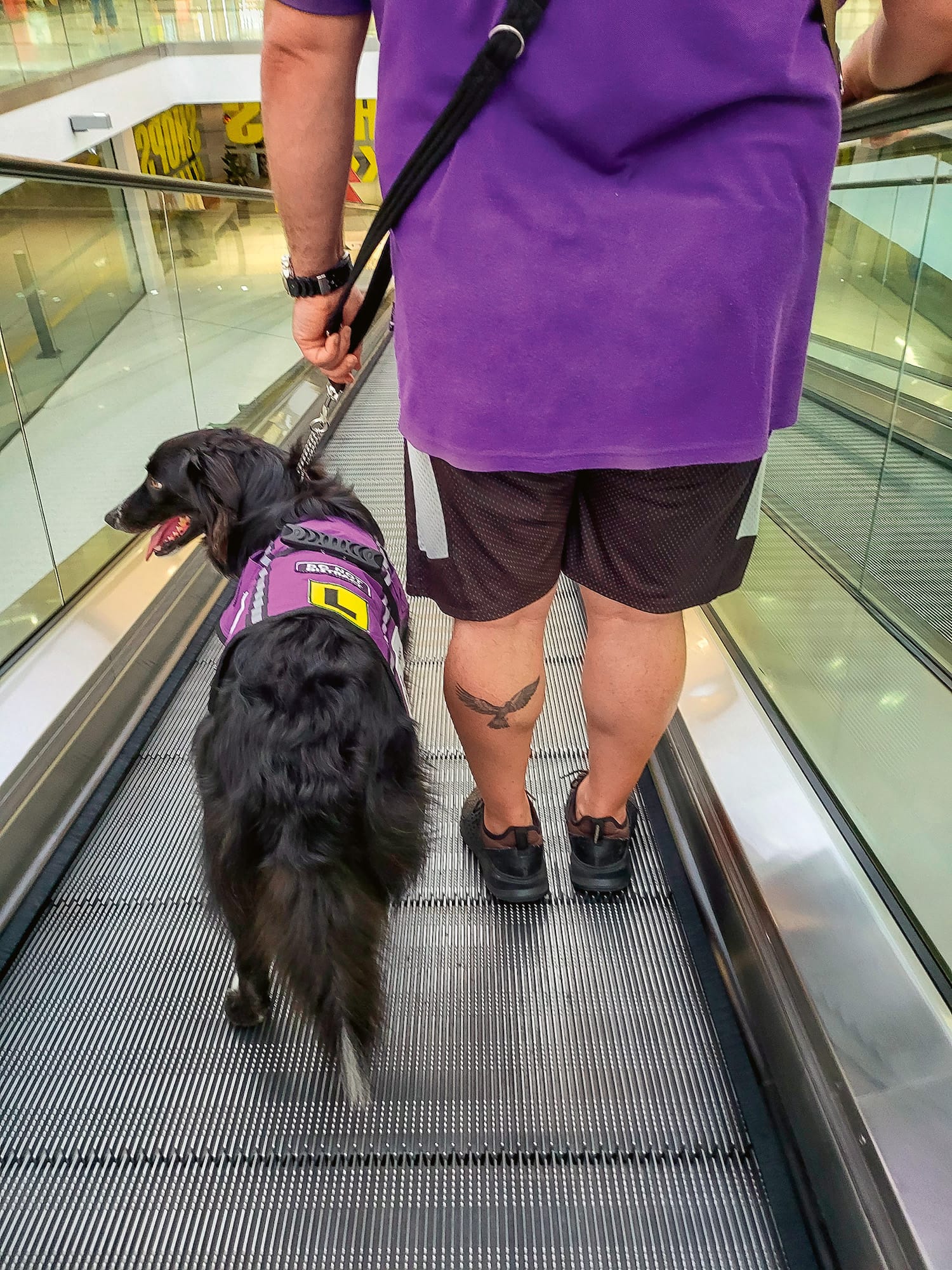
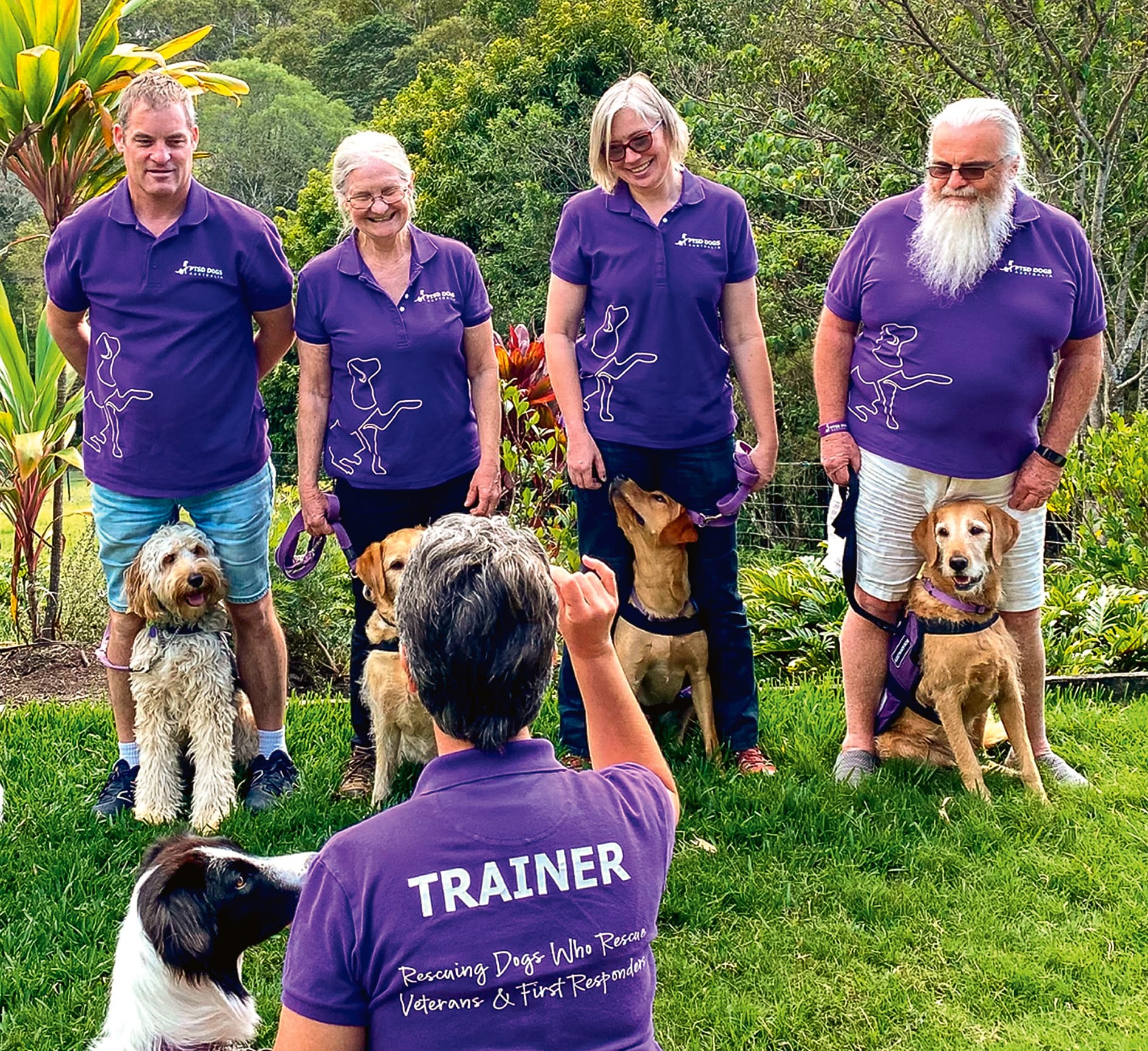
Blaze assisting his handler at a shopping centre; training session with handlers and foster dogs.
Steph Cowper and her husband grew up in regional areas, near shops, amenities, schools and opportunities. Since 2020, when the family moved from the Scenic Rim to Green Vale in the Charters Towers region of northern Queensland, their children have had a very different childhood to their parents. They attend online distance school with their mother as tutor, and it’s a four-hour round trip to activities.
“In between classes, they can go ride their motorbikes or build a cubbyhouse,” says
Cowper. “That’s really bizarre for someone who had to attend a normal school.”
The family had a steep learning curve, from finding work and a community to managing daily life. Navigating education for James and Maisy, now aged 11 and nine, became easier after Cowper joined the Charters Towers branch of the Isolated Children’s Parents’ Association (ICPA), later becoming its publicity officer.
ICPA was set up in 1971 with the mission of ensuring equal access to education for children and families living in remote and rural locations. The advocacy and education at state and federal level is combined with on-the-ground work by 96 branches across Australia.
The emphasis and approach of each branch is different, reflecting its location and members’ priorities. Charters Towers ICPA organises annual in-person events, including a two-day swim clinic and a four-day sport camp, where kids rotate through activities including tennis, music and dance.
Both events are highlights for local families, treasured for the socialising, learning and activities. “These are all things that most isolated children do not get to experience until they go to boarding school,” says Cowper. “They are so exhausted afterwards, but it is honestly the most incredible time.”
She describes the ICPA as a “one-stop shop” for information, offering help with everything from curriculums and financial assistance to scholarships and subsidies, as well as allowing parents to connect with others in similar circumstances.
The annual state conference is particularly special, Cowper says. “You just walk away from it with your heart full, because you’ve got to meet so many other isolated mums and dads who are in the same position as you, with the same struggles.”
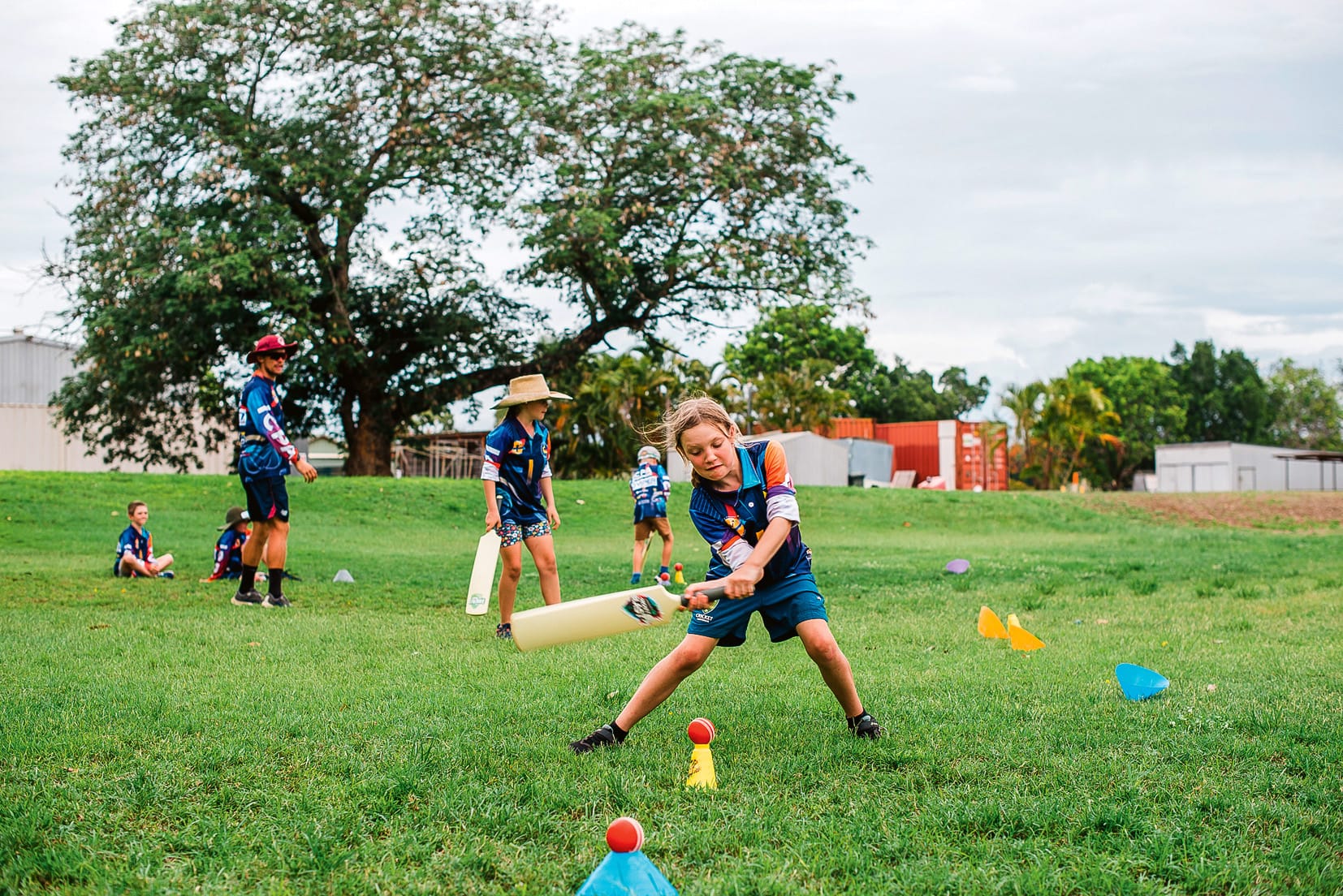
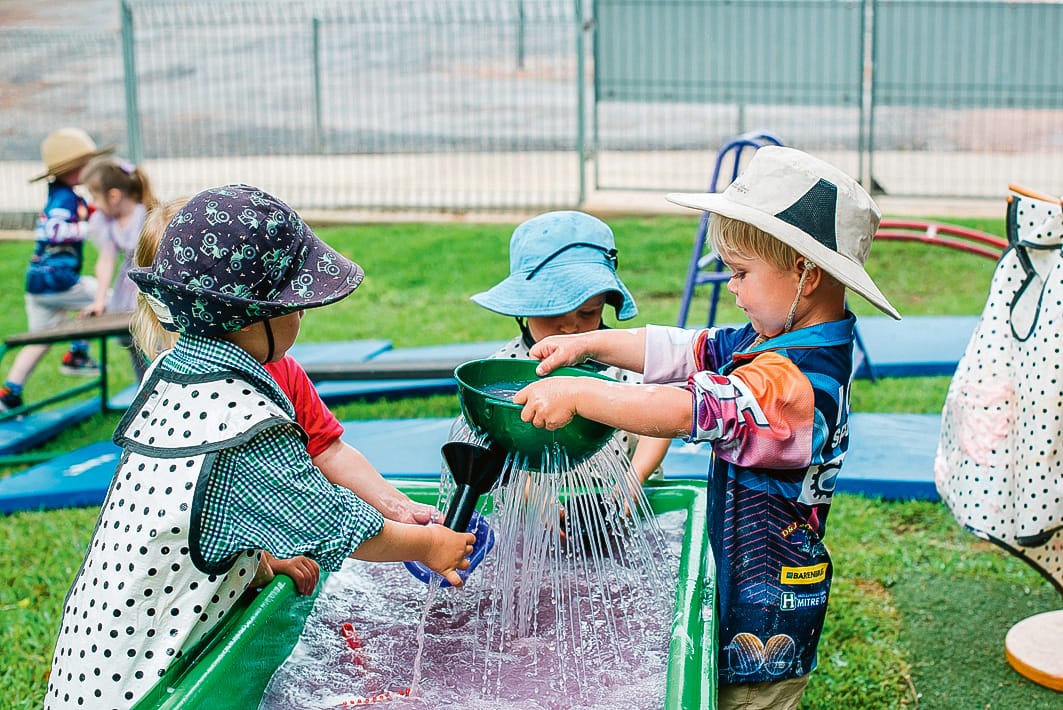
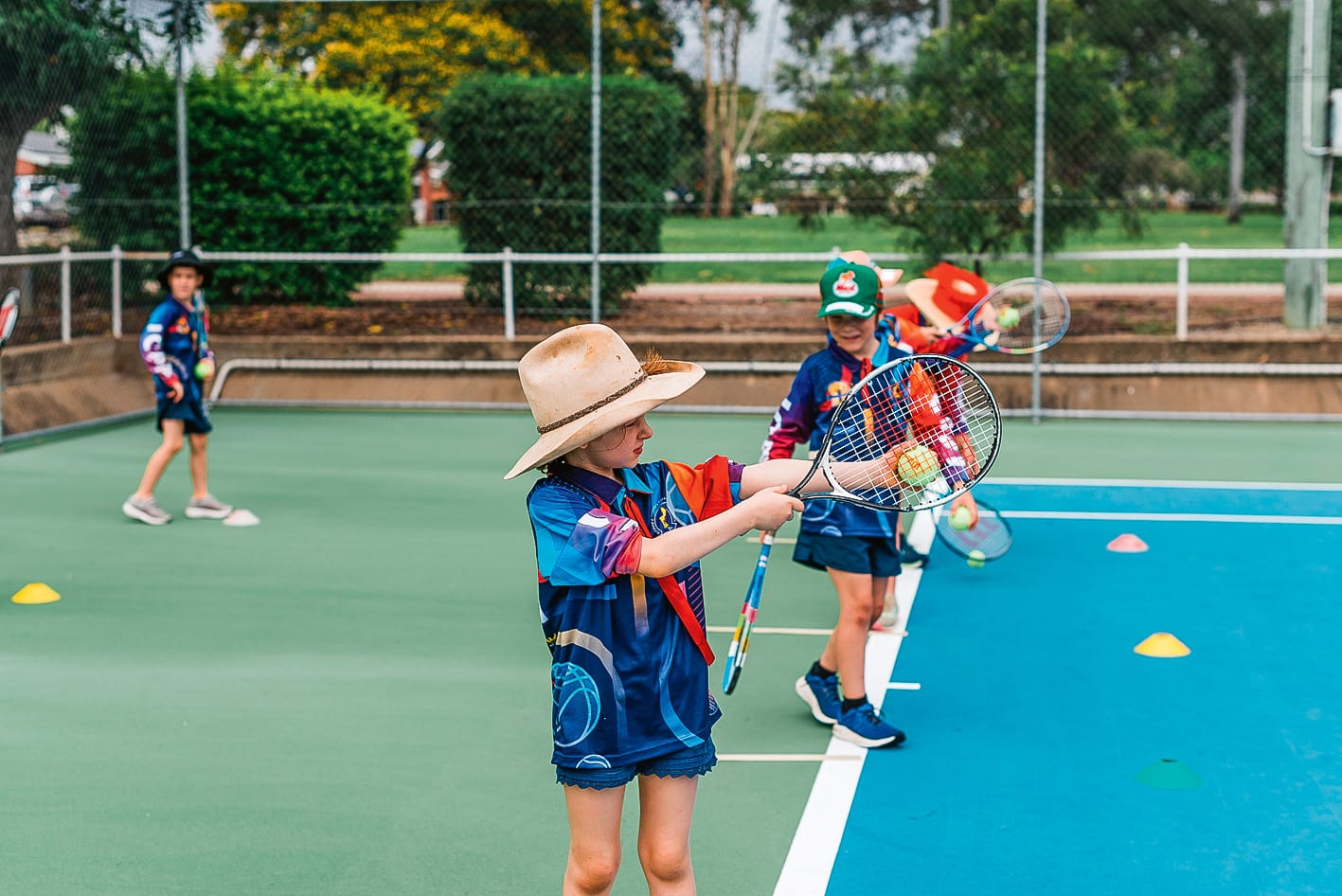
Face-to-face sport at the annual Charters Towers ICPA sports camp. Photography by Stephanie Cowper.
When a group of women in the New South Wales city of Newcastle realised there was nowhere for friends escaping domestic violence to go, they banded together and created Jenny’s Place. It was 1977, and with support from the city council they turned a three-bedroom house in the central suburb of Islington into a refuge for up to 15 people: a safe, often hectic place for women to plan their next steps.
Almost 50 years later, the charity is a wraparound organisation helping women and children break the patterns of family violence and rebuild their lives. It delivers a range of services in four key streams: crisis accommodation, specialist youth caseworkers, outreach and homelessness support, and domestic violence support.
Nicole Morwitch, the organisation’s communications and engagement specialist,
offers an example of what this means to women in crisis. Recently, a woman and her children arrived at the charity’s Newcastle Domestic Violence Resource Centre after decades of abuse. She had tried to leave several times but had nowhere to go. Her husband’s violence had escalated, and she turned to the charity for help. By that evening, the family were safe in the refuge. With the help of Jenny’s Place, they’ve since secured long-term accommodation, accessed the support services they need, and built a new life. This time, they’re not going back.
Crisis accommodation is currently provided in two five-bedroom shelters – one for single women and another for families – each far better versions of the original refuge. By 2026, these will be supplemented by a new centre at Westlakes, in the Lake Macquarie region, where a central building for social services will be surrounded by clusters of independent accommodation.
Tenancy support ensures women can find and maintain safe housing, whether that’s the first long-term rental after months in the refuge or help catching up with the rent.
Specialist youth caseworkers help with everything from behavioural issues to speech and occupational therapy. “They’re there every day, helping the kids when they get home from school, making sure they’re on top of their homework and addressing any issues,” says Morwitch.
The centre’s remit extends beyond crisis support into early intervention and
education. Says Morwitch: “As well as supporting women to re-establish their lives and independence after leaving violence, we’re also working collaboratively to raise awareness about DV’s indicators and impact so that we can get ahead of this social crisis, focusing on prevention and early intervention.”
To learn more about Westfund, including the Westfund Community Grants Program, see westfund.com.au